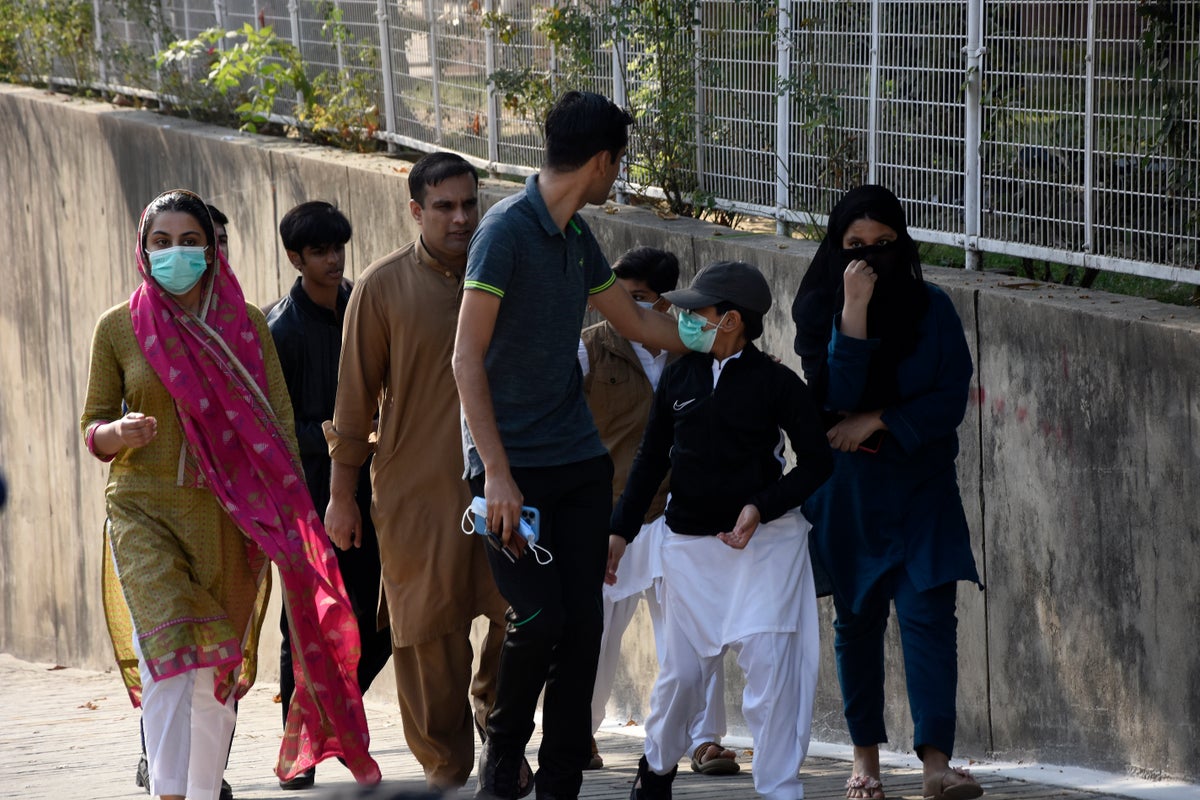
Thousands of people Thursday mourned the death of an outspoken Pakistani journalist in the capital as the nation's spy chief and military spokesman demanded an independent investigation into the mysterious killing in Kenya.
Arshad Sharif, 50, was killed Sunday night when the car he was in sped up and drove through a checkpoint outside Nairobi. His body was flown home Wednesday and his funeral took place Thursday in Islamabad. The killing has drawn widespread condemnation in Pakistan.
Pakistan has not launched its own investigation into the killing of the journalist. Interior Minister Rana Sanaullah Khan has said, however, that the government will soon send a two-member team of civilian investigators to Kenya to determine the circumstances surrounding the journalist’s death.
Police in Kenya's capital have issued contradictory statements deepening the mystery behind Sharif’s death. Initially, they expressed regret over the incident, saying it was a case of “mistaken identity.” They said Sharif was killed during a search for a similar car involved in a child abduction case.
Later, police said someone opened fire from Sharif's car, wounding a police officer and officers shot back.
Sharif's family, his friends and Pakistani government officials are demanding a fair investigation. Sharif, 50, left Pakistan in August to avoid arrest following a citizen’s complaint against him alleging he maligned the country’s national institutions. Most of his friends until his death only knew that he was in Dubai, the United Arab Emirates.
Sharif’s employer — the private ARY Television in Pakistan — had fired him in August, saying he had violated the TV station’s social media policy. His talk show POWERPLAY, which aired on Mondays and Thursdays, was discontinued.
The station had earlier in the year remained critical of Pakistani Prime Minister Shahbaz Sharif — no relation to the journalist — who ousted his predecessor Imran Khan in a no-confidence vote in parliament in April. The slain journalist was Khan’s vocal supporter, and Khan has been claiming that he was ousted as part of a U.S.-designed plot, a charge both Washington and the Pakistani government deny.
As more than 15,000 mourners gathered for Sharif's funeral at the country's largest Faisal Mosque in Islamabad, Lt. Gen. Nadeem Ahmed Anjum, the country's spy chief, and military spokesman Lt. Gen. Babar Iftikhar, demanded an investigation. It was the first time in the country's history that its spy chief took part in a news conference.
Anjum told reporters in the garrison city of Rawalpindi that there was no threat to Sharif's life when he left the country in August. Sitting next to him, Iftikhar, the military spokesman, also said the military did not try to stop Sharif from leaving Pakistan from the northwestern city of Peshawar.
“Arshad did not want to leave but he was told that his life is in danger," Iftikhar said. Among the questions were why Sharif was in Kenya, where he was traveling with another Pakistani resident, Khurram Ahmed, when their car failed to stop despite being flagged down at the checkpoint.
Anjum, the spy chief, said at the news conference his agency was deliberately distancing itself from any domestic investigation as he wanted an independent probe to accurately conclude why Sharif left Pakistan in September when there was no threat to his life, and why he did not come back after his Dubai visa expired in September.
“There should be an impartial and transparent investigation" into this whole matter, Anjum said.







